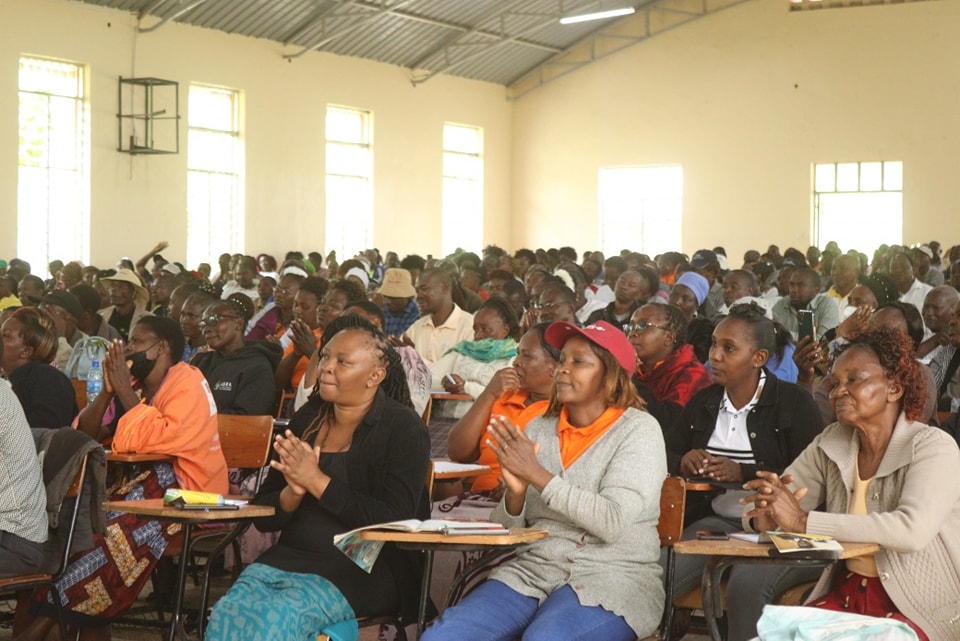 Farmers follow keenly during a training at Lukenya University. Photo Courtesy.
Farmers follow keenly during a training at Lukenya University. Photo Courtesy.
By Andrew Mbuva
In a bold step towards strengthening food systems and climate resilience in Kenya’s arid and semi-arid regions, Lukenya University this week brought together over 400 Village-Based Advisors (VBAs) from Makueni, Kitui, Embu, and Tharaka Nithi counties for a five-day intensive training programme focused on sustainable and climate-smart agriculture.
Held at the university’s Mtito Andei campus, the capacity-building initiative is a collaboration between Lukenya University, AGRA, Farm Africa, and CIFOR-ICRAF. The training is designed to empower frontline agricultural advisors with practical knowledge and techniques that can transform smallholder farming practices across Kenya’s drylands.
“This programme is about building resilience in our communities. We are training those who are already doing agriculture in their own ways, but now giving them the tools to transfer knowledge and help solve real farming challenges on the ground,” said Dr. Paul Mwania Mwania, Vice Chancellor of Lukenya University. “If the knowledge gained here is taken back to the villages, food security will no longer be an issue in this country.”
Key topics covered during the week-long training include sustainable dryland farming, climate-resilient practices, soil and water conservation, agroforestry, and post-harvest management. Farmers and agricultural experts alike hailed the training as a game-changer for dryland agriculture.
An agricultural expert working with the Cereal Growers Association (CGA), noted the importance of water harvesting techniques in addressing the region’s biggest challenge—unreliable rainfall. “We have been teaching farmers how to harvest water into their farms. With the right knowledge, even minimal rain can result in productive harvests.”
In Tharaka Nithi, the impact of the programme is already being felt. Farmer David Ndwinga shared his personal success story: “We were trained on regenerative agriculture practices like mulching. Before AGRA came in 2022, I could only harvest five bags per acre. Now, I am harvesting up to eight.”
Dr. Abed Kiwia of AGRA emphasized the importance of partnerships with local governments. “We are working closely with the county governments of Kitui, Makueni, Embu, and Tharaka Nithi. Once the VBAs complete the training, they will be certified and can provide extension services at the grassroots level under the supervision of County Extension Officers.”
The initiative has also been praised by farmers themselves for bridging critical knowledge and coordination gaps. “We want to ensure there is good collaboration between farmers, national, and county governments,” said a farmer from Embu County. “This training helps close that gap and ensures that the right information reaches those who need it most.”
As the world grapples with climate change and food insecurity, Kenya’s drylands remain vulnerable but filled with potential. The Village-Based Advisors trained at Mtito Andei are expected to play a key role in transforming agriculture from subsistence to sustainable, profitable, and resilient farming.